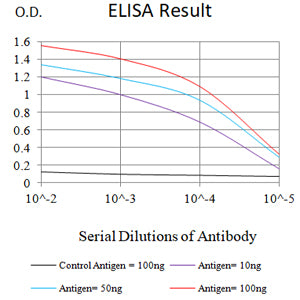
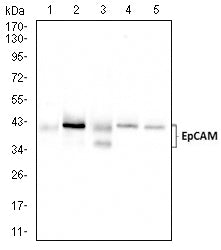

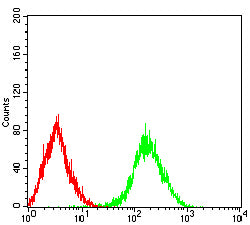
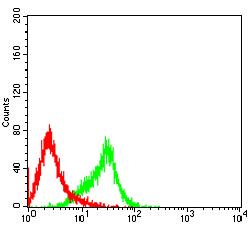
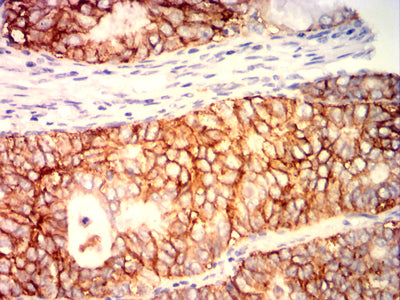
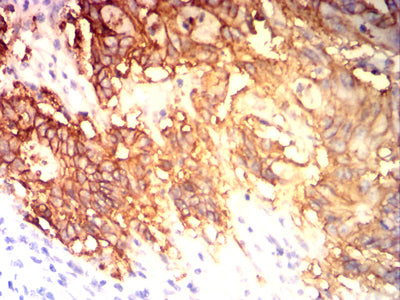
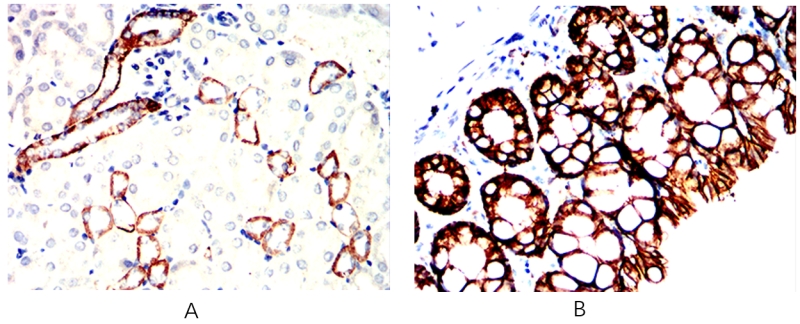
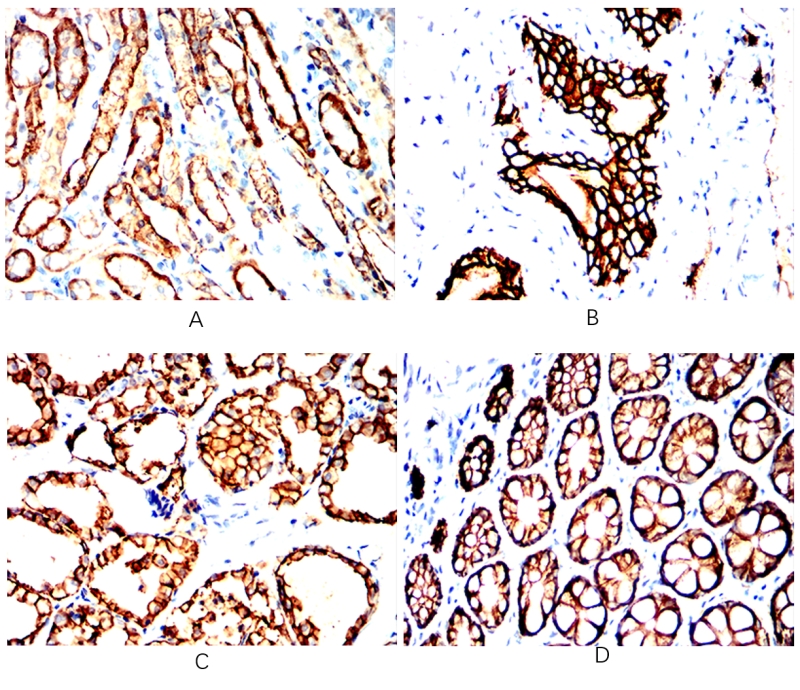
| WB | 1/500 - 1/2000 | Human,Mouse,Rat |
| IF | 咨询技术 | Human,Mouse,Rat |
| IHC | 1/200-1/1000 | Human,Mouse,Rat |
| ICC | 技术咨询 | Human,Mouse,Rat |
| FCM | 1/200-1/400 | Human,Mouse,Rat |
| Elisa | 1/10000 | Human,Mouse,Rat |
| Aliases | ESA; KSA; M4S1; MK-1; DIAR5; EGP-2; EGP40; KS1/4; MIC18; TROP1; EGP314; HNPCC8; TACSTD1 |
| Entrez GeneID | 4072 |
| clone | 4D6E7 |
| WB Predicted band size | 35kDa |
| Host/Isotype | Mouse IgG2a |
| Antibody Type | Primary antibody |
| Storage | Store at 4°C short term. Aliquot and store at -20°C long term. Avoid freeze/thaw cycles. |
| Species Reactivity | Human,Mouse,Rat,Monkey |
| Immunogen | Purified recombinant fragment of human EPCAM (AA: extra(116-265)) expressed in E. Coli. |
| Formulation | Purified antibody in PBS with 0.05% sodium azide |
+ +
以下是关于EPCAM抗体的3篇文献示例(虚构摘要,仅用于格式演示):
1. **文献名称**: "EpCAM as a diagnostic marker for circulating tumor cells in solid tumors"
**作者**: Vogelstein B, et al.
**摘要**: 研究验证了EpCAM抗体在检测血液中循环肿瘤细胞(CTC)中的应用,证实其作为结直肠癌和乳腺癌转移筛查的高灵敏度标志物。
2. **文献名称**: "Therapeutic targeting of EpCAM in cancer stem cells via monoclonal antibodies"
**作者**: Houghton AN, et al.
**摘要**: 开发了一种靶向EpCAM的人源化单抗,通过抑制肿瘤干细胞自我更新能力,在胰腺癌模型中显著降低肿瘤复发率。
3. **文献名称**: "EpCAM antibody-conjugated nanoparticles for targeted drug delivery"
**作者**: Farokhzad OC, et al.
**摘要**: 利用EpCAM抗体修饰的纳米颗粒实现化疗药物靶向递送,在卵巢癌异种移植模型中提高疗效并减少系统性毒性。
(注:以上文献信息为示例,实际引用需以真实发表的论文为准。)
The epithelial cell adhesion molecule (EpCAM), encoded by the TACSTD1 gene, is a transmembrane glycoprotein primarily expressed on the basolateral surface of epithelial cells. It plays a critical role in cell-cell adhesion, intracellular signaling, and maintaining epithelial integrity. Structurally, EpCAM consists of an extracellular domain with epidermal growth factor (EGF)- and thyroglobulin-like repeats, a single transmembrane region, and a short intracellular tail.
EpCAM is overexpressed in numerous epithelial-derived carcinomas (e.g., breast, colorectal, and ovarian cancers) and has emerged as a key biomarker for cancer detection and therapeutic targeting. Its upregulation correlates with tumor progression, metastasis, and poor prognosis. EpCAM antibodies specifically recognize extracellular epitopes of this protein, enabling applications in diagnostics and research. In clinical diagnostics, these antibodies are widely used in immunohistochemistry (IHC) to identify epithelial-derived tumors and distinguish carcinomas from other malignancies.
Therapeutically, EpCAM-targeting monoclonal antibodies (e.g., catumaxomab) have been developed for cancer treatment, often conjugated with toxins or radionuclides for targeted therapy. Recent advances explore their role in liquid biopsies for detecting circulating tumor cells (CTCs) and in CAR-T cell therapies. However, challenges remain, including variable expression across tumor subtypes and potential off-target effects in normal epithelial tissues. Ongoing research focuses on optimizing antibody specificity and developing combination therapies to enhance clinical efficacy.
×